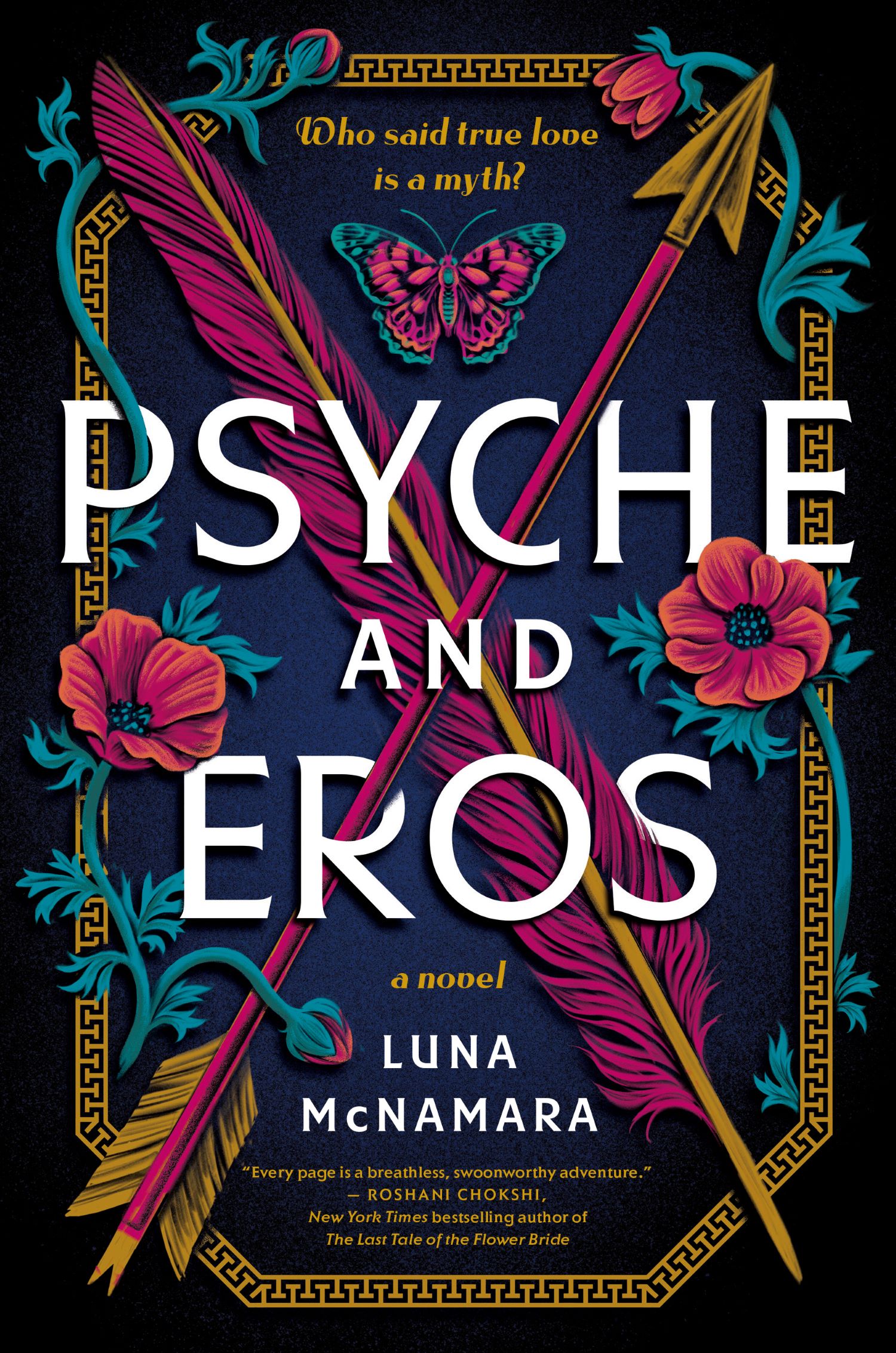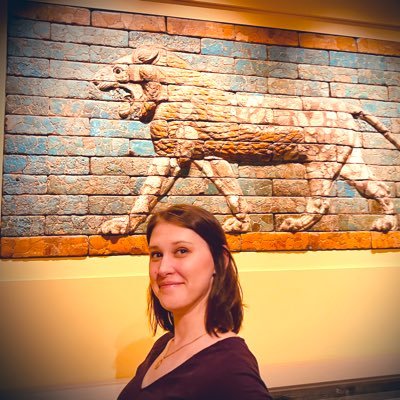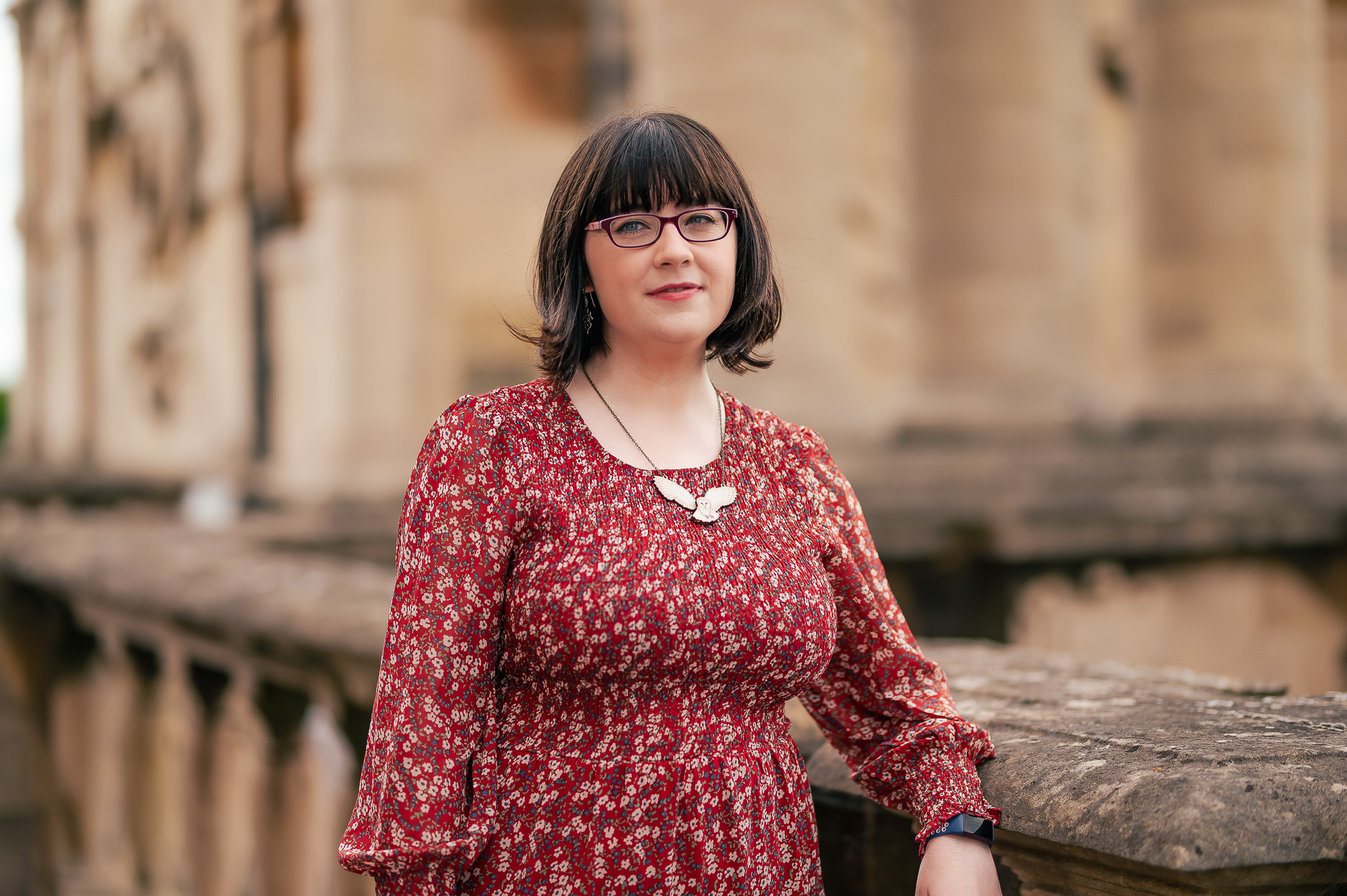Today, we are so excited to welcome Luna McNamara to our blog to discuss her new myth retelling, Psyche and Eros, along with some tips for how to write your own!
Hi! Can you tell us a little bit about yourself and your recent novel, Psyche and Eros?
Hello! I’m Luna McNamara, an author and social worker living in Boston. I have a background in the study of women and gender in world religions, with a special interest in Greek language and philosophy.
My debut novel, Psyche & Eros, is about the god of love accidentally falling for a young mortal woman. It’s a little bit Madeline Miller’s Circe, a little bit Disney’s Hercules.
What did your journey to publishing for Psyche and Eros look like?
The process certainly wasn’t quick or straightforward. I started writing it as a fanfic in 2018, and slowly realized that I could do more with the story. It was around this time that the pandemic hit, and I found myself living alone in a one-bedroom apartment in Boston. So I decided to do something with my unlimited free time, and worked steadily on the novel.
I had a draft by January of 2021, and started sending it out to literary agents that I found through manuscriptwishlist.com. I got a few nibbles, but nothing concrete until Hattie Grunewald emailed me with an offer of representation in December of that year.
After a few months of editing with Hattie, we went on submission, and everything started to move very quickly. P&E was snapped up in a pre-empt in the UK and a four-way auction in the US. We’ve also struck deals for translation rights for 11 different languages and counting. It all feels like a fairy tale.
In your myth retelling, Psyche is a badass warrior woman (love it, btw), and Eros is the one pining after her. What inspired you to twist the myth in this way?
This decision came from a close perusal of secondary scholarly literature on the myth, particularly the article “The Labors of Psyche: Toward a Theory of Female Heroism,” by Lee R. Edwards. Psyche is a unique figure in Greco-Roman mythology – she is arguably the only woman to undertake the katabasis, the descent to the Underworld, and she completes a series of impossible labors assigned by a goddess. At the beginning of the myth, Psyche confronts a monster and issues a courageous speech to friends and family who mourn her departure. All of these are features of hero narratives (usually limited to men) in Greco-Roman mythology. So I thought, why not dial into this and turn it up to eleven? What if I used Psyche’s story not only to talk about love, but to question the violent self-aggrandizement so rife in mythology and history?
It’s also not as large of a twist as it might seem. Eros is indeed the one who pricks himself with the love-cursed arrow first and falls for Psyche in the original myth. Psyche’s warrior training puts them on more equal ground, and makes the gap in power between a god and a mortal less severe.
Feminist Greek myth retellings are HUGE right now. Do you think these retellings are helping change the field of classics into a more inclusive space?
I think they’re reflective of changes that are already taking place. For a long time, classics were elite modern men reading about elite ancient men, but now we’re seeing much more diversity in the field in terms of gender, race, ethnicity, ability, and sexual orientation. We’re also seeing renewed interest in non-literary sources, such as art, and in the lives of ordinary people in the ancient world. I think this is fantastic for many reasons, not least because it will give voice to long-neglected perspectives.
Though ancient texts like the Iliad, Odyssey, and Aeneid were written by and for men, they also offer tantalizing glimpses of fascinating female characters. Think of the sexual power and fierce independence of Circe, whom Odysseus can only pacify by going to bed with her; or the regal authority of Dido, who rules a city; or the delicious ambiguity of Helen, who drugs everyone’s drinks at a party in the Odyssey when the guests start discussing her time in Troy. Though these ancient texts often hamstring the power of their female characters (I’ll never get over Dido killing herself when Aeneas sails off), we’re left with such intriguing tidbits that you wonder if we’re really getting the full story.
This, I think, is the appeal of modern retellings: we finally get a new perspective on the old tales, and characters previously relegated to the shadows have the chance to be heard.
What kind of research did you have to undertake while writing Psyche and Eros?
As mentioned above, I was curious about the secondary reception of the myth among scholars, and how academics from a variety of disciplines from classics to psychology had understood and interpreted it.
I also leaned on some of my academic training in languages and literature. For example, I was having some trouble building the character of Eros until I reflected on the adjective that the poet Sappho uses for Eros: glukúpirkron, ‘sweetbitter.’ The contradictory characterization of love as both sweet and bitter helped me shape the wry, jaded, contrary personage of Eros.
I also spent a lot of time with the source text for the Eros and Psyche myth: The Golden Ass by Lucius Apuleius, a novel from the second century CE. I was curious about the context of the story and how it expressed the themes of the novel. I also had the chance to correspond with some scholars working in this area, which was an enormous pleasure.
Do you have any other writing projects on the horizon you can tell us about? (Fingers crossed for more Greek myth retellings!)
I’m currently working on a retelling of the Argonautica by Apollonius of Rhodes, which describes the quest of Jason and his Argonauts to obtain the Golden Fleece from King Aeetes of Colchis.
But a close reading of the text reveals an unlikely hero at the center of the story: Medea, the daughter of King Aeetes and an accomplished witch in her own right. Medea is the one who ensures Jason’s success, protecting him from fire and serpents and even destroying a robot on their journey home.
I’m particularly interested in Medea’s relationships with two other unlikely heroes in the Argonautica mythos: Jason, whom even the source texts treat as a bit of an underdog; and Atalanta, the great female hero, boar hunter, and racer, who was such a joy to write in Psyche & Eros.
Medea finds herself in a love triangle, torn between her affections for Jason and for Atalanta. Eventually Medea must choose between the love thrust upon her and the love she chose, between being a victim and becoming a murderer.
Do you have any researching tips for other authors wanting to write about the ancient world?
My first piece of advice is to learn as much Greek and Latin as you can. Language study helps you get into the mindset of an ancient culture, although it is not accessible to many. I also recommend reading as many texts from the ancient world as possible, even in translation. Perseus Digital Library (http://www.perseus.tufts.edu/hopper/) is an excellent free resource for this. Many ancient texts are in the public domain, which means you can find them for free on the internet, but I do advise caution around different translations.
Can you provide links to any websites or social channels you’d like readers to follow?
Website: https://www.lunamcnamarawriter.com
Instagram: https://www.instagram.com/luna_mcnamara_writer/
Facebook: https://www.facebook.com/McNamaraLuna/
Twitter: https://twitter.com/McnamaraLuna

For more author interviews with writing and publishing advice, click here.
To sign up for Ready Chapter 1’s Peer Critique Forum to get fast, actionable feedback on your writing, click here.




